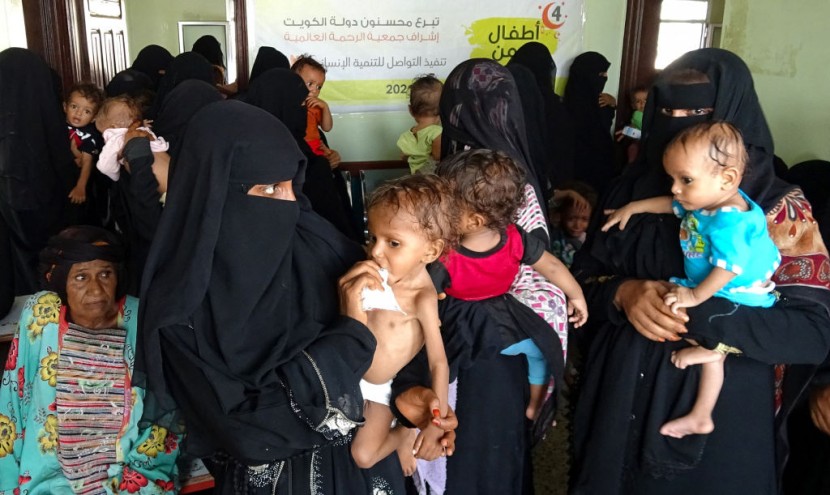
The United Nations' deputy humanitarian chief said Yemen's economy is crumbling, its humanitarian crisis is intensifying, and the conflict in the Arab world's poorest country is becoming more brutal.
Assistant Secretary-General Ramesh Rajasingham made the bleak remarks during a briefing to the United Nations Security Council. More than 20 million Yemenis, or two-thirds of the population, require humanitarian help, but relief organizations are "once again" running out of money, he added.
Aid agencies faces funds shortage amid Yemen's crisis
However, he warned that aid agencies do not have enough funds to continue operating at this level, and that up to 4 million individuals might have their food aid cut in the next weeks and months, and that by the end of the year, that figure could grow to 5 million people.
Yemen has been torn apart by civil conflict since 2014, when Iran-backed Houthi rebels took control of the city, Sanaa, and much of the country's northern region, forcing the internationally recognized government to evacuate to the south, then to Saudi Arabia.
In March 2015, a Saudi-led coalition, supported by the US, entered the conflict to try to restore President Abed Rabbo Mansour Hadi to power and backed his administration, as per PBS.
Despite a never-ending air campaign and ground battles, the conflict has mostly devolved into a stalemate, resulting in the world's greatest humanitarian crisis. Since then, the United States has withdrawn from the fight.
The Houthis began an attack in the largely government-controlled Marib region in early 2020, killing thousands of young people and displacing thousands of residents who live in constant dread of violence and being forced to relocate.
Tribal leaders and Yemeni officials claimed on Thursday that fighting over Marib had killed at least 140 combatants on both sides in the past 24 hours. They claimed the fights were taking place in the Abdiya and al-Jubah areas, Newsweek via MSN reported.
The Houthis "intensified their ruthless attack in Marib, taking more territory there and in surrounding portions of the southern province of Shabwa," Rajasingham said during the Security Council briefing.
UN, Yemen's Security Council discuss peace restoration
He also mentioned clashes between rival armed groups earlier this month in Aden, where Hadi's government set up headquarters after the Houthis drove them out of Sanaa and the north, as well as ongoing fighting, shelling, and air strikes in northwest Saada, western Hajjah, and Hodeida provinces "and along nearly 50 other front lines."
The Houthis began an attack in the largely government-controlled Marib region in early 2020, killing thousands of young people and displacing thousands of residents who live in constant dread of violence and being forced to relocate.
Tribal leaders and Yemeni officials claimed on Thursday that fighting over Marib had killed at least 140 combatants on both sides in the past 24 hours. They claimed the fights Rajasingham also mentioned clashes between rival armed groups earlier this month in Aden.
The southern city where Hadi's government established headquarters after the Houthis drove them out of Sanaa and the north, as well as ongoing fighting, shelling, and air strikes in northwest Saada, western Hajjah, and Hodeida provinces "and along nearly 50 other front lines."
According to Rajasingham, 235 civilians were killed or injured in September, the second-highest number in two years. And fighting in Marib is taking "a particularly devastating civilian toll," with over 10,000 people displaced in September, the second-highest number in two years, as per The Washington Post.
Hans Grundberg, the new United Nations special envoy for Yemen, informed the Security Council that he has spoken with government and Houthi leaders, as well as key regional and international authorities, to discuss how to proceed toward a political settlement to restore peace in Yemen.
While progress on pressing humanitarian and economic concerns should be achieved, urgent political negotiations without preconditions are required to reach a peace agreement, according to Grundberg.
Related Article: Taliban Allows Afghan Girls Under Grade 7 To Return to Some Afghanistan Provincial Schools But Not in Kabul
@YouTube
© 2025 HNGN, All rights reserved. Do not reproduce without permission.








